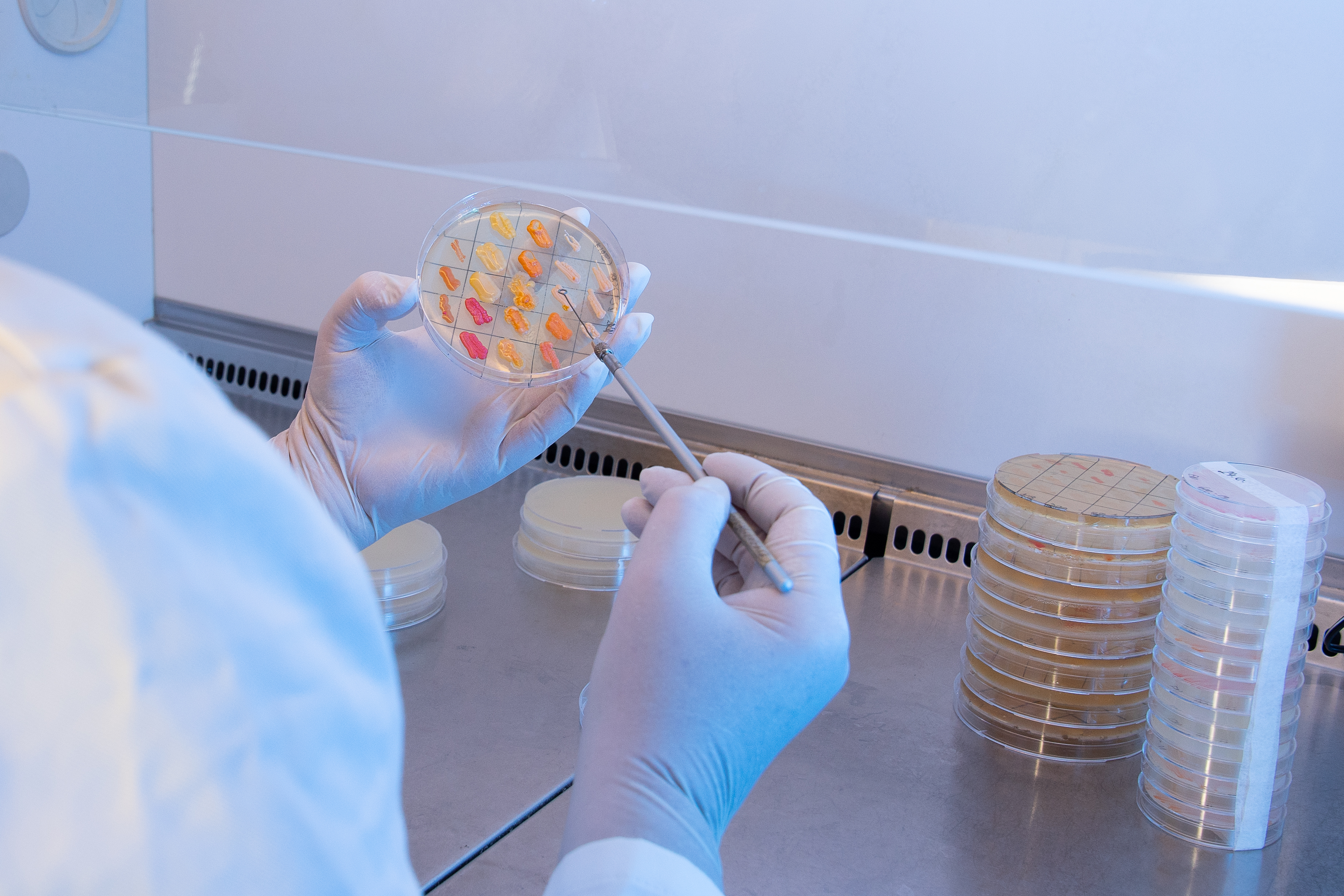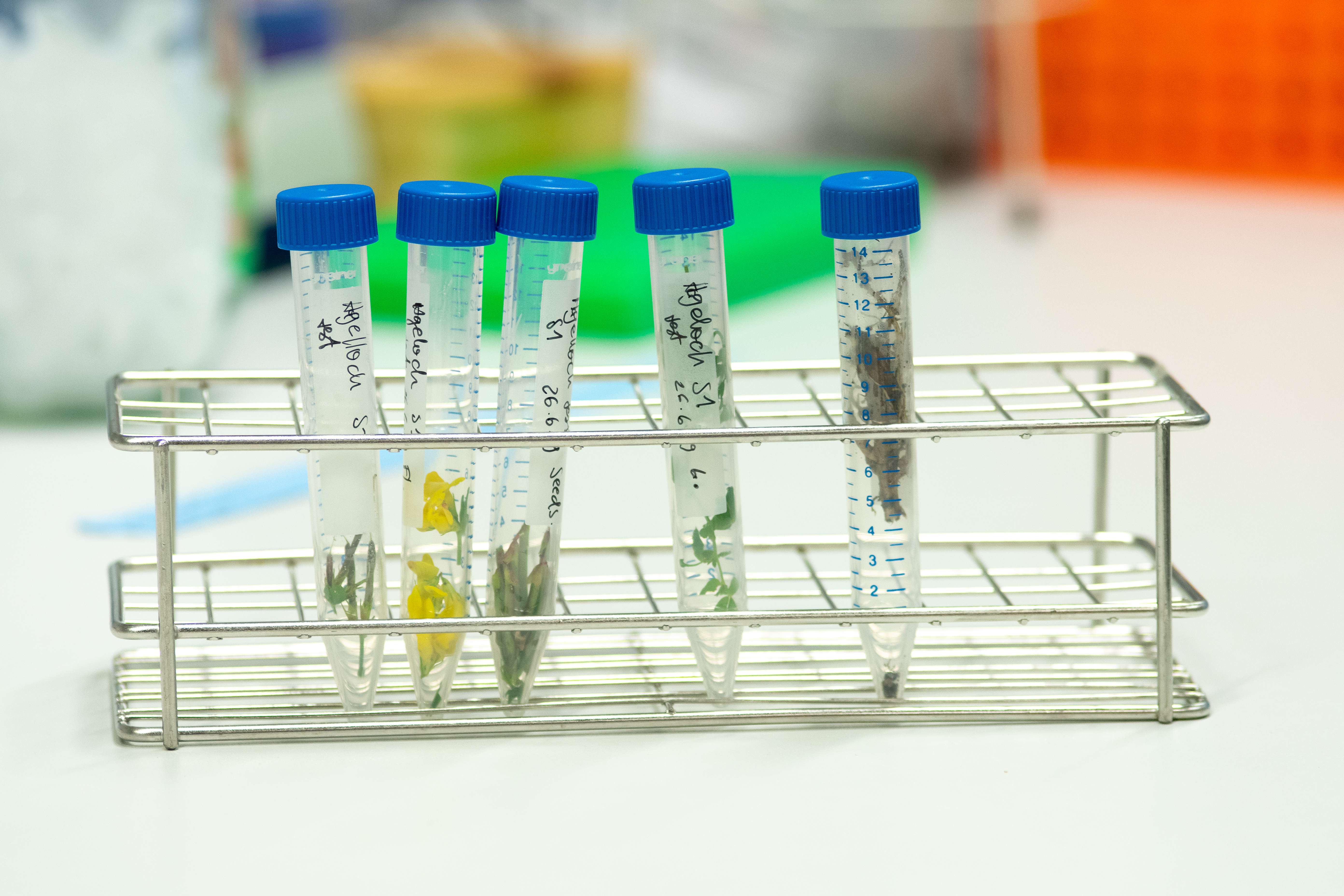Microbial Interactions in Plant Ecosystems
We are an interdisciplinary team that bridges microbiology, plant sciences, ecology, and computational biology. As members of both the Center for Plant Molecular Biology (ZMBP) and the Interfaculty Institute of Microbiology and Infection Medicine Tübingen (IMIT), we are dedicated to unraveling the fundamental mechanisms that transform random microbial inputs into well-defined, often host-associated microbial communities. Our expertise enables us to address complex questions about microbial community dynamics, integrating experimental and computational approaches to gain insights into microbial interactions and their roles in plant health and adaptation.
Research Projects and Focus Areas:
- Deciphering Microbial Community Dynamics in Plant Ecosystems through Synthetic Communities
- Capturing Stress-Related Microbiota from Plant Endophytic Niches
- Local Co-Adaptation of Cakile maritima and Its Microbiota to Climatic Stress
- Microbiota-Assisted Pathogenicity in the Arabidopsis Phyllosphere
- Mechanisms of Basidiomycete Yeast Function in Complex Leaf Microbial Communities
- Ecology of the Microbiota in Lotus corniculatus
- Enhancing Rice Resilience to Iron Toxicity with Microbial Interactions
For a complete overview of all project summaries, please visit our Research Overview page.
Research Interest:
Our research focuses on the dynamic interactions within plant-associated microbial communities, examining how these interactions influence plant health, adaptation, and resilience under varying environmental conditions. We investigate microbial diversity in both endophytic and epiphytic communities, analyzing how factors like plant genotype, environmental stressors, and microbial cross-talk shape community composition and stability.
In natural ecosystems, plants are continually exposed to abiotic stresses such as extreme temperature changes, fluctuating moisture levels, and nutrient imbalances. We explore how these stress conditions affect plant-microbe and microbe-microbe interactions, particularly in harsh environments where microbes must adapt collectively to support their host in order to protect their ecological niche. By studying these microbial communities in field and controlled settings, we aim to uncover how plant-associated microbes contribute to tolerance mechanisms, such as iron detoxification in rice, resilience to drought, interactions that suppress pathogens in model plants like Arabidopsis, and adaptations to harsh environmental conditions in grassland species such as Lotus corniculatus.
Additionally, our work integrates synthetic biology and bioinformatics to model microbial community assembly, predict beneficial interactions, and design probiotic solutions for sustainable plant health. Using experimental and computational approaches, we seek to understand how microbial diversity and functionality evolve in response to environmental pressures, ultimately advancing our ability to manage and harness these communities for agricultural and ecological applications.
Research Data Management (RDM):
As we are using a broad range of high-throughput data generation and analyses, highly structured data management has become a key discipline in our field of research. Across all our projects, including DeCoCt, PlantMicrobe, PlantsCoChallenge, DECRyPT, and the rice microbiome studies, we apply FAIR principles (Findable, Accessible, Interoperable, and Reusable) to ensure that data and metadata are standardized, accessible, and integrable. This approach enables seamless data sharing, advanced computational analyses, and the reproducibility necessary to uncover microbial community dynamics and enhance plant resilience strategies.
Universität Tübingen
IMIT/ZMBP
Microbial Interactions
Auf der Morgenstelle 32
D-72076 Tübingen/Germany
Room 4 Q 22
Coordinator
Prof. Dr. Eric Kemen
eric.kemenspam prevention@zmbp.uni-tuebingen.de
Tel.: ++49-7071/29-78725
Administration office
The administrative position is currently vacant.
Science Podcast: Key To My Research - Can Plants Beat Climate Stress?
Microbiome of plants: In this Episode of Key To My Research, the science podcast by the excellence strategy at the University of Tübingen we dive into the groundbreaking work of Prof. Dr. Eric Kemen. We explore the world of plant resilience. Discover how Prof. Kemens research on microbial interactions in plant ecosystems could revolutionize agriculture and help us tackle the pressing issue of food security in the face of climate change.
Listen
KEY TO MY RESEARCH
Can Plants Beat Climate Stress? – Prof. Dr. Eric Kemen
Host:
Welcome to Key To My Research the science podcast by the Excellence Strategy at the University of Tübingen. In this podcast, we explain in a simple way how outstanding scientists are researching complex topics that affect our everyday lives.
My name is Jennifer, and I’m your host.
In todays episode, we will get to know Professor Eric Kemen.
Prof. Kemen:
Our main goal in general is to figure out what does it mean for a plant to become robust.
Host:
He researches Microbial Interactions in Plant Ecosystems at the Interfaculty Institute of Microbiology and Infection Medicine in Tübingen. And he is researching Microbial Interactions in Plant Ecosystems.
Here is an example:
Prolonged periods of drought or flooding cause entire harvests to fail because our crops cannot survive them. But nature quickly turns green again after such extreme conditions. Why is that?
Prof. Kemen:
Key to my research is for sure to understand from an ecological point of view where plants are growing, how they are growing, what are the environmental factors, and to go down from these ecological aspects to the individual genes and how they function.
So that is also what motivates me all the time to do my work. It's really that the way of understanding how on the really small scale we can understand how this basically translates later on in an ecological or agricultural context.
Host:
Before becoming a professor, Eric Kemen would have liked to have worked in agriculture and become a farmer.
Prof. Kemen:
I would have probably become a more organic farming person. So I was always interested in alternative farming, so where you basically don't use a lot of agrochemicals, but where you basically use more the natural resources that exist in order to build up your farm. So that would have been my idea. But of course it's not easy if you don't come from a farm to become a farmer and to get land to do this, actually. So this then had to be an idea and stayed very theoretical.
Host:
Perhaps as theoretical as his research is today. Professor Kemen and his team are doing basic research. Their goal is to be able to apply their science to agriculture one day. But for now, it remains at a theoretical level.
Prof. Kemen:
Our main goal in general is to figure out what does it mean for a plant to become robust. So what does it mean if you stand out there, and you suddenly have sun that burns down like hell and basically their temperature increases to 60 degrees because the ground gets hot to 70 degrees and the plant has to stay. And then during the night it suddenly drops or in winter it drops really below zero and so on. But still the plant basically stays, and we have not really a good idea what this robustness is and how we can basically change it or adapt it.
Host:
The big question is, how do we get back the resilience of wild plants while maintaining the yield of our agricultural crops?
Prof. Kemen:
One has to be aware that we have to feed more and more people on the earth. So basically we cannot really risk that we are producing less. So we really have to see that we get this plant robust by learning something from the nature.
It's very difficult to really breed in all these genes with classical breeding in the real time that we need with these genes because we are already seeing that we have very harsh conditions for our plants that I mean most people have really faced already this year and will face also during the summer really extreme temperature, extreme hot, extreme water. And of course there the plants need to adapt, and we need to find a way how to really get this to the agriculture very quickly.
Host:
What Professor Kemen means is that it is much easier to work with so-called transgenes or genetically modified plants. The use of genetic engineering in agriculture is controversial. The German Environment Ministry warns of herbicide resistance. Professor Kemen understands the criticism. He says that if the manipulation is done in a safe environment, just by introducing specific genes into the plant, it can help achieve faster results and be more resilient in the face of climate change. According to Professor Kemen, time is running.
Prof. Kemen:
I think it's the timeline within the next 10 years that we really have to find what makes the plants robust. So what makes them really survive in nature. And then we have to get this as quickly as possible into the crops that they become really robust.
Host:
That is why the University of Tübingen is the right place. Professor Kemen says it is the perfect combination of disciplines that makes this university so unique.
Prof. Kemen:
Here the plant research is really a focus. So there we are in one big institute where we are only looking at plant research. And we also are associated with ecology, for example, that also has a big part looking into plant. And this is really a center for plant science. And of course, this is a big advantage if you have colleagues nearby that all work on plants and all different aspects. And this is, I think, one of the unique sites where you have such a focus that so many groups work with the same interest on the same topic. And for me, it was also interesting to come here and very important because it's not only plant sciences, but we also have a very strong microbiology. And within this microbiology, the microbiome is one of the hot topics and the main topics they are focusing on. And as I'm part also of the microbiology, this is making the perfect environment where one can study on one side the plant, one can study the micro, and one can really bring this together with the ecology to study how plants interact with their environment to really survive these harsh conditions.
Host:
And for Professor Kemen, this little town has a lot more to offer than that.
Prof. Kemen:
What I really like about Tübingen is that first of all, it's an extremely international city. So it's a very small city. And usually small cities in Germany are not so international, but Tübingen is completely different. And for me personally, I think what is important is that it's really embedded in natural reserve, like the Schönbuch, which is a huge forest area, which is really natural. And it's really fantastic to go out there and spend days because you can just walk from Tübingen outside, and you can walk for hours and hours and hours just through nature.
Host:
Professor Kemen enjoys sharing this experience with his family. Together they enjoy going into the woods and observing what he calls spectacular nature.
Prof. Kemen:
I don't know if that is of a scientist, but we are the whole family, my kids and my wife, we are very much interested in plants in general. So we are very fascinated by the diversity that is out there. And of course, we want to know which plants are there if we don't know them and try to identify them together. And of course, we are also, since I'm also into microbiology, we are very fascinated by the diseases the plants have. This might sound a bit strange, but there's such a diversity of microbes. You can basically see if you look closer at the plant. So they are, for example, rust fungi, and they make fantastic structures where they release their spores in the environment. And you can see them on the plant. They are very colorful. So there are orange spores, red spores, brown spores, and so on. And this we as a family like very much also to look into those pathogens. Of course, what you find always are a lot of mildew that are outside there. And just seeing by a naked eye how fantastic the diversity is that is out there. And the fantastic thing is also you have all these pathogens there. The plants are still all very healthy. So, and that is, of course, fascinating looking out there in nature. And of course, what we usually have with us is a small pocket microscope. So we usually also try to look closer into insects and whatever we see there, and how the structure also look on the microscopical level to get an idea of what we really find out because these are just fantastic structures. If you look in the microscope and it's so fascinating what nature is generating there.
Host:
This was: “Key To My Research”, a Podcast produced by changing time in cooperation with the University of Tübingen. For more information and links to the sources, see the show notes below. There you can also find a link to the hole interview with Professor Kemen. If you enjoyed this episode, make sure to subscribe to the podcast, leave a review, and recommend it to your friends and colleagues.
Authors: Chris Veit and, Joti Fotiadis.
Special thanks to: Professor Eric Kemen, Heiko Heil, Oliver Häußler, Kurt Schneider and Oliver Lichtwald.
My name is Jennifer and I’m your host. Thanks for listening and see you next time.



